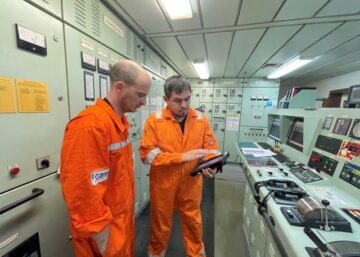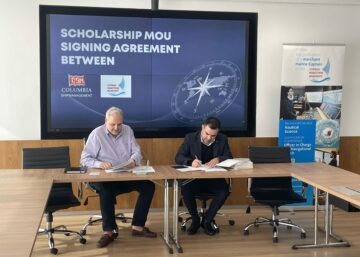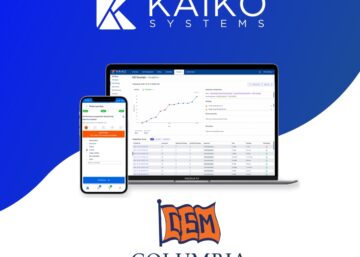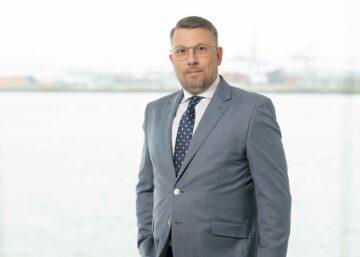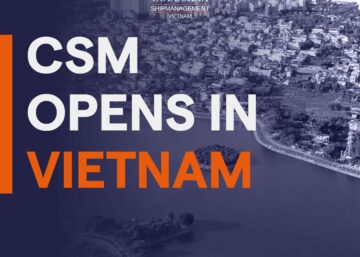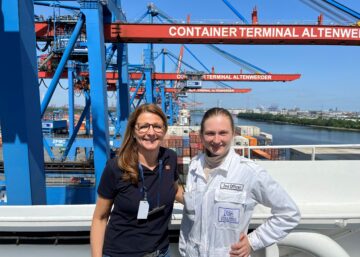5 questions to …
Joachim Brack, Joint Managing Director CSM Energy & Mark O’Neil, President and CEO Columbia Ship Management
CSM Energy provides services for safer and greener ship recycling to shipowners and operators. What are the biggest challenges in IHM procedures from your point of view?
Joachim Brack: During Covid-19, physical on board inspections have been difficult to achieve. IHM compliance is a complex issue requiring specialist knowledge. The process of maintaining IHM compliance is an ongoing one – calling for the engagement of personnel on land and for the crews on board. The associated paperwork is huge as one has to keep track, monitor and record all changes/repairs done on board. The biggest challenge is dovetailing the IHM compliance and maintenance procedures into the company’s purchasing processes in such a manner, as to allow digital processes to be employed. Ensuring continuous IHM-compliance is a huge challenge in itself and penalties can be very severe. CSM Energy was established in 2019 in order to provide management services for the Offshore and Energy sectors, and separately, IHM, environmental and green recycling services and consultancy.
Mark O’Neil: Our goal is to offer turn-key IHM, environmental and green recycling solutions – from the cradle to the grave of the asset lifecycle. These solutions are required by our shipping clients, but also by our clients generally, including those in the cruise, superyacht, offshore and renewable energy sectors.
Do you see implications of green recycling and IHM topics for the cooperation of ship owners, managers and charterers?
Brack: Ship managers have to be able to advise and assist their clients on all aspects of the optimised operations of their vessels. This includes optimizing IHM compliance and maintenance, environmental audits and green recycling preparation.
What are challenges in working with shipyards on green recycling procedure from your experience?
Brack: During the construction stage shipyards need to collect the required IHM data from their suppliers and pass this on upon delivery. This means they must ensure that for every piece of machinery and for each structural item, the necessary data is obtained from the supply chain. Once again, this involves a huge amount of paperwork. Ships are 99 % recyclable and if owners have performed their duties and developed and maintained a correct IHM part I, II, and III, and have considered the environmental lifecycle, then they have done everything they can to develop and implement the Ship Recycling Plan.
Do you see a growing demand for IHM and green recycling services?
Brack: Yes, absolutely. But you cannot deal with these issues on the side line. You need to focus on them from the outset, engage with specialists and deal with the subject proactively. CSM and CSM Energy are probably one of the few companies to have a dedicated Environmental Compliance Manager (similar to the role of a DPA), who is responsible to give guidance to the vessels, train the crew and also audit them.
What are your expectations for the months ahead?
Brack: We have made IHM and environmental compliance a central and integral part of our daily operations. All other operators need to do the same, and quickly. Certainly we will see some disruption in the short to medium future where standards and levels of knowledge vary from jurisdiction to jurisdiction.
O’Neil: Vessel optimisation includes optimisation of operation, supply, procurement, crewing and training. It also includes optimisation of environmental compliance and green recycling. Quality optimised operation includes consideration of all of these factors. This requires well trained staff and crew harnessing the digital and technological tools now available.
